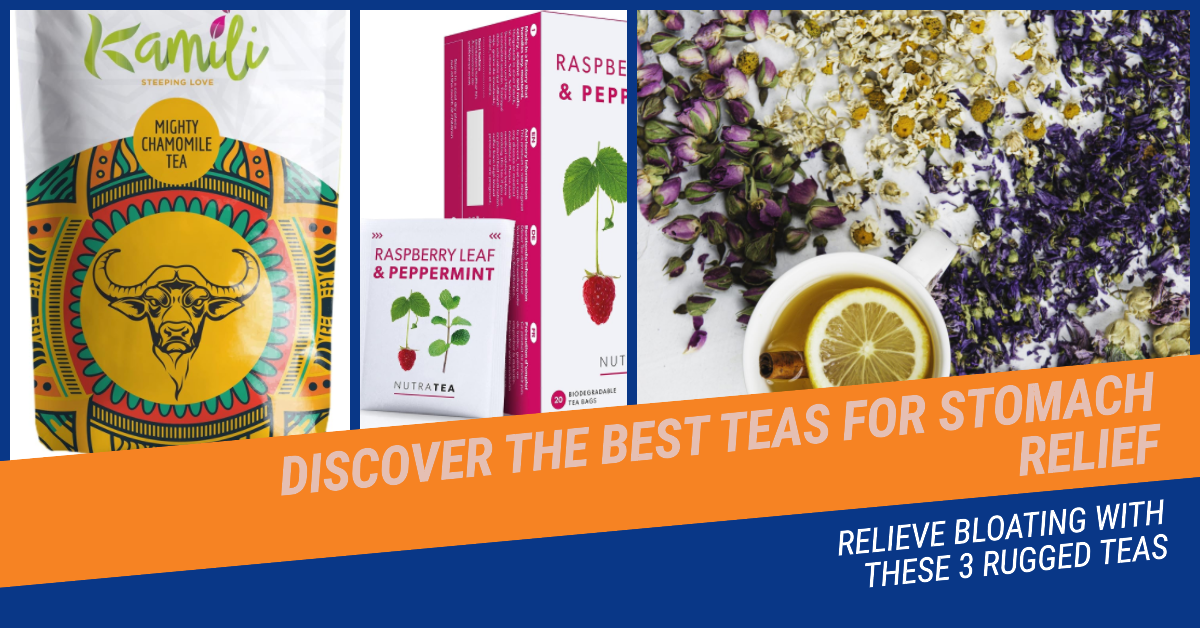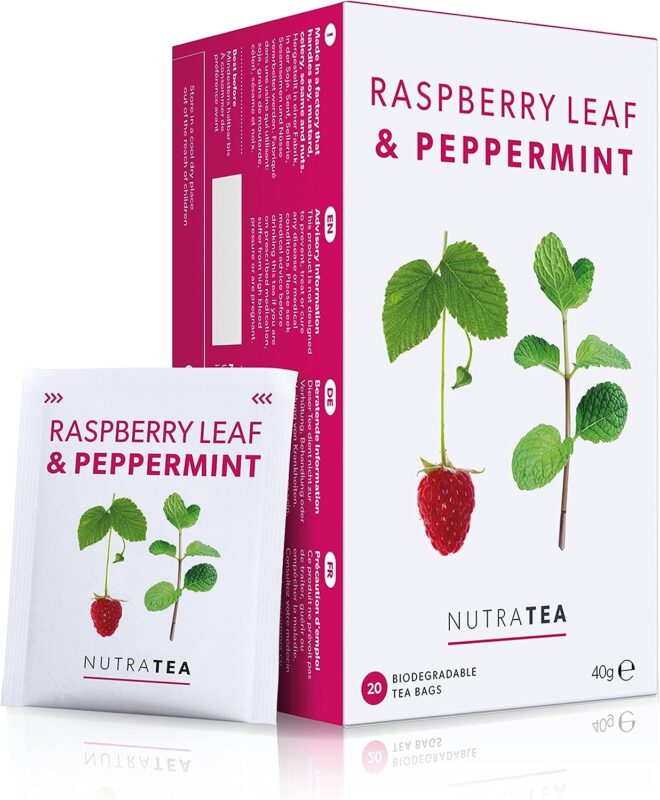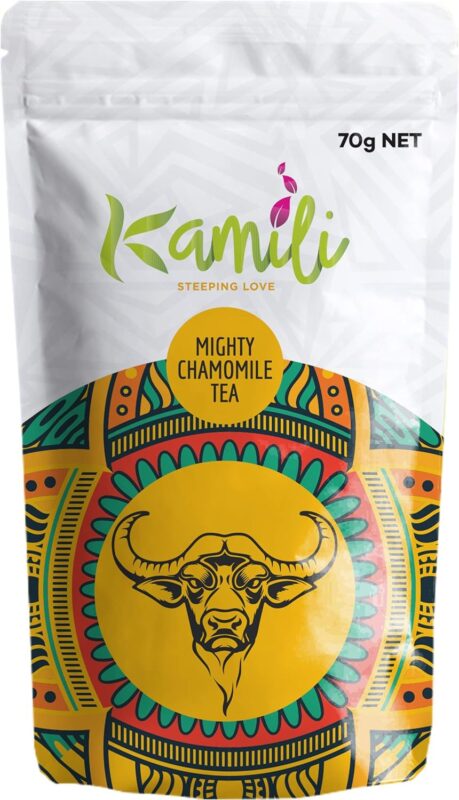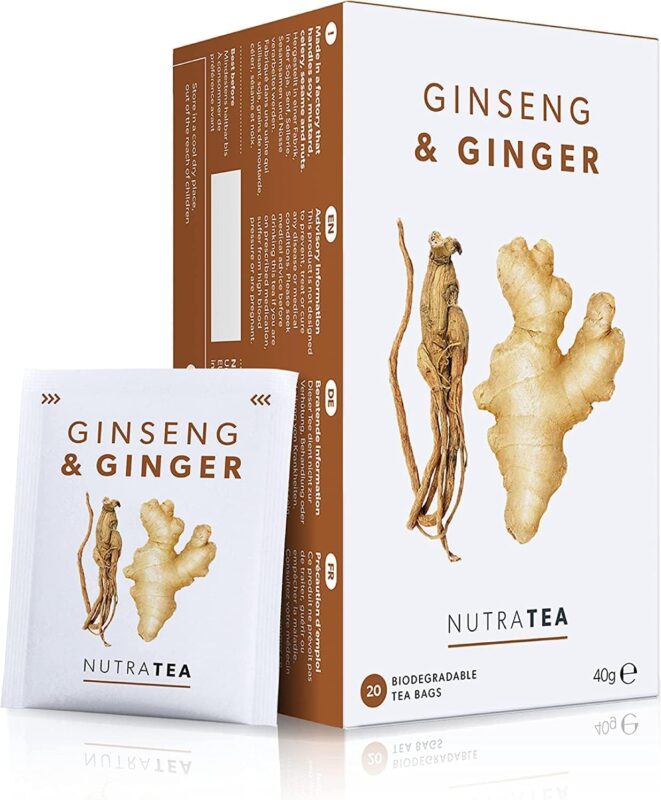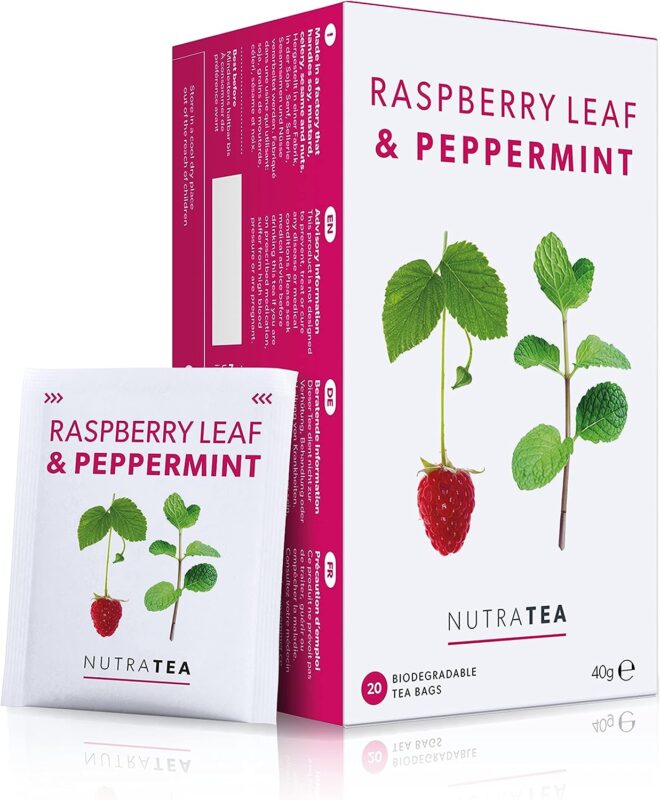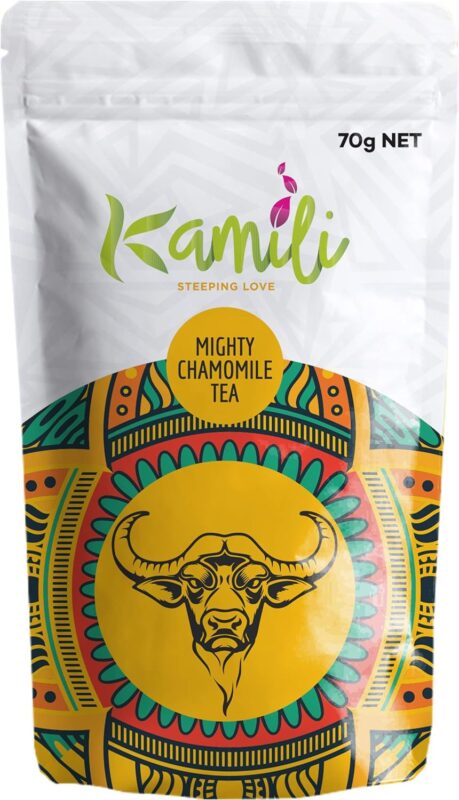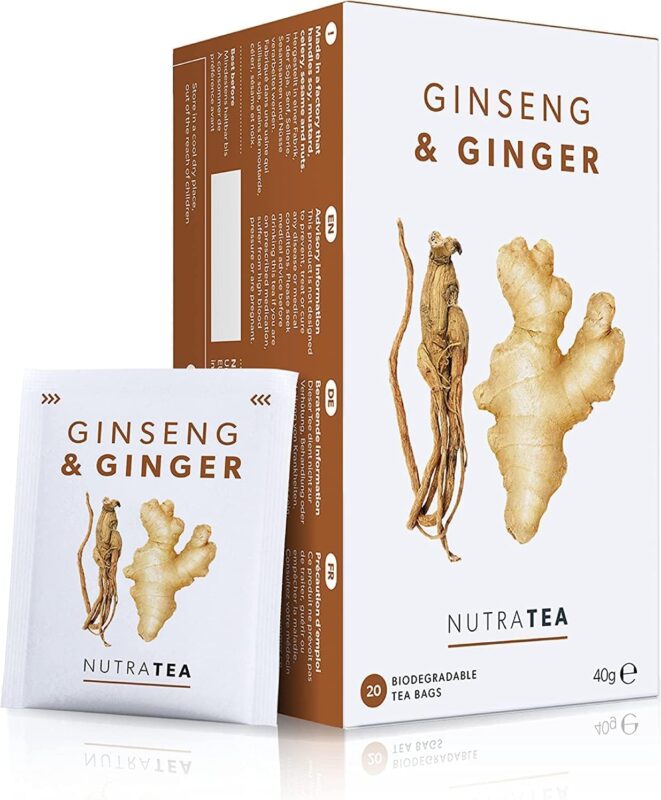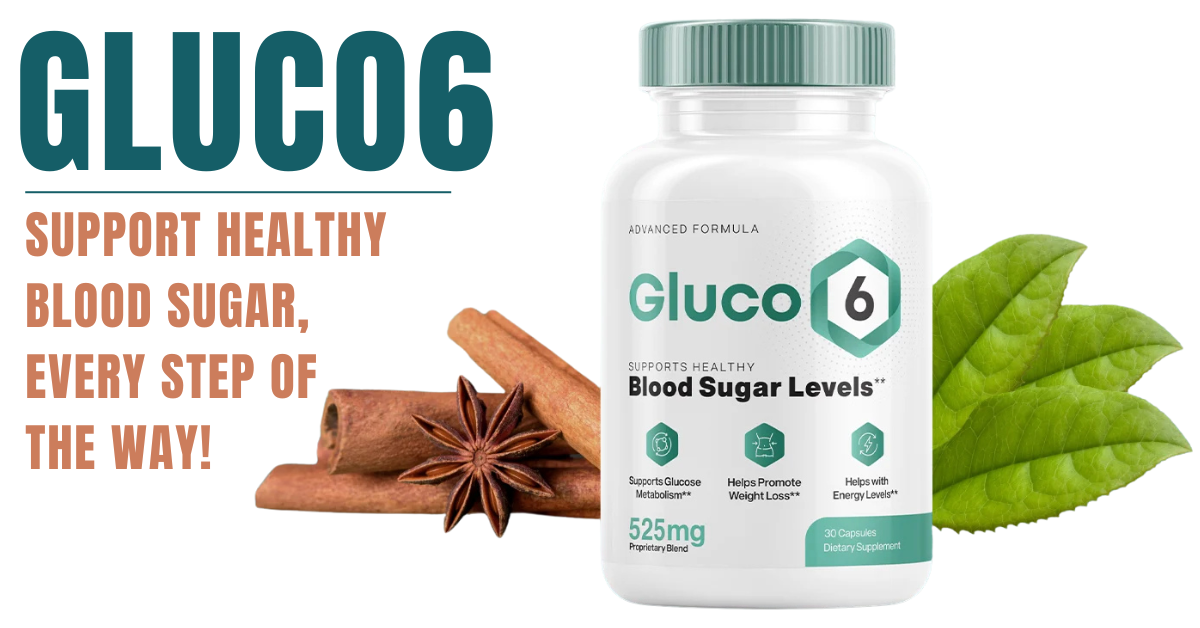Introduction
Have you ever experienced the uncomfortable sensation of stomach bloating? It can leave you feeling sluggish, uncomfortable, and self-conscious. But fear not, because we have the solution for you! In this article, we will explore the best three teas that can provide relief for stomach bloating. So, sit back, relax, and get ready to discover the power of these herbal beverages in soothing your troublesome tummy.
Peppermint tea, one of the most widely consumed teas globally, is not just known for its refreshing taste. It possesses natural antispasmodic properties that soothe the gastrointestinal muscles, making it an excellent remedy for stomach discomfort and bloating.
On the other hand, chamomile tea works wonders in reducing inflammation in the digestive system and is also revered for its stress-relieving properties. Stress is often an overlooked factor contributing to stomach bloating.
Lastly, ginger tea, enriched with compounds like gingerol, has been a cornerstone in traditional medicine for its digestive benefits. Together, these teas form a trifecta of herbal remedies providing a comprehensive solution to stomach bloating.
Key Takeaways
- Peppermint tea, due to the menthol present, can help relax the gastrointestinal muscles, thereby easing bloating and gas.
- Chamomile tea has anti-inflammatory properties, which can soothe the digestive system and reduce bloating, and also helps in reducing stress.
- Ginger tea’s active compounds, gingerol and shogaol, provide anti-inflammatory benefits and improve digestion, helping alleviate bloating.
- Maintaining a balanced diet, staying hydrated, avoiding carbonated drinks, exercising regularly, and managing stress can significantly reduce stomach bloating.
- If severe or persistent bloating occurs, especially if accompanied by other worrying symptoms, it’s crucial to consult with a healthcare professional.
For centuries, humans have turned to herbal remedies to address a variety of ailments. With the modern-day shift towards natural and holistic health, it’s no surprise that many are returning to these tried and tested solutions.
Stomach bloating, a common issue plaguing many, finds relief in these remedies, especially herbal teas. The benefits of peppermint, chamomile, and ginger tea are undeniable, making them the top choices for those seeking natural remedies for digestive concerns.
Each offers a unique set of properties, ensuring that individuals can find a tea tailored to their specific needs. As with any remedy, it’s essential to consult with a healthcare professional before diving deep into the world of herbal remedies. But for many, the path to digestive wellness may be steeped in a warm, soothing cup of tea.
Any Questions🤔?
Reach out to us! We’re here to clarify and prioritize your well-being. 🌟
Tea 1: Peppermint Tea
How does peppermint tea help with bloating relief?
Peppermint tea is a popular choice when it comes to relieving stomach bloating. The menthol present in peppermint leaves has natural antispasmodic properties that help to relax the muscles of the gastrointestinal tract. This can result in the easing of bloating and gas.
When you consume peppermint tea, the menthol works as a muscle relaxant, helping to reduce the spasms and contractions that can lead to bloating. It also has a calming effect on the digestive system, which can help to alleviate discomfort and promote overall digestive wellness. Peppermint tea has been used for centuries to treat various digestive issues, including bloating, indigestion, and irritable bowel syndrome (IBS).
Nutra Tea – Raspberry Leaf & Peppermint Tea – Raspberry Leaf Tea For Pregnancy & Expectant Mothers – 20 Tea Bags – Herbal Tea
Embracing the nurturing benefits of nature, Nutra Tea presents its exquisite blend of Raspberry Leaf and Peppermint Tea, especially tailored for pregnancy and expectant mothers. This herbal fusion, known for its unique properties, aids in preparing the body for childbirth. Raspberry leaf has been traditionally used for its uterine toning benefits, potentially easing the process of labor. Complementing this, the peppermint not only imparts a refreshing flavor but also helps to soothe digestive discomforts, common during pregnancy. The tea is thoughtfully packed in 20 individual tea bags, ensuring each brew is as potent and fresh as the last. For those awaiting the arrival of a new member, this tea can be a wonderful companion, providing both comfort and health benefits. If you wish to explore more about this product, Check Price on Amazon.
✅ Tailored for pregnancy, aiding the body in preparation for childbirth.
✅ Raspberry leaf offers potential uterine toning benefits.
✅ Peppermint alleviates digestive discomforts.
✅ Individual tea bags ensure potency and freshness with every brew.
✅ Natural and safe herbal blend for expectant mothers.
How to prepare peppermint tea?
Preparing peppermint tea is simple and straightforward.
- Start by boiling water in a kettle or pot.
- While the water is boiling, take a handful of fresh peppermint leaves or a tea bag and place it in a teapot or mug.
- Once the water has reached its boiling point, pour it over the peppermint leaves or tea bag.
- Let the tea steep for about 5-10 minutes to allow the flavors to infuse into the water.
- After steeping, strain the tea leaves or remove the tea bag.
- Optionally, you can add a natural sweetener like honey or a squeeze of lemon for added flavor.
- Enjoy your peppermint tea while it’s still warm.
When to drink peppermint tea?
Peppermint tea can be consumed at any time of the day to help with bloating relief. However, it is particularly beneficial to drink it after meals when bloating is likely to occur. Sipping on a warm cup of peppermint tea can aid in digestion and prevent or alleviate bloating symptoms.
Precautions while consuming peppermint tea
While peppermint tea is generally safe for most people, it’s important to keep a few precautions in mind. First, if you have gastroesophageal reflux disease (GERD) or acid reflux, peppermint may exacerbate your symptoms by relaxing the lower esophageal sphincter, which can lead to acid reflux. It’s best to consult with a healthcare professional if you have any underlying digestive conditions.
Additionally, if you are pregnant or breastfeeding, it’s advisable to consult with your healthcare provider before consuming peppermint tea. Although peppermint tea is considered safe in moderate amounts, it’s always best to check with a professional to ensure it won’t have any adverse effects on you or your baby.
Tea 2: Chamomile Tea
How does chamomile tea help with bloating relief?
Chamomile tea is another herbal remedy that can help with bloating relief. Chamomile contains compounds called flavonoids, which have anti-inflammatory properties. These properties make chamomile tea effective in reducing inflammation in the digestive system, soothing the lining of the intestines, and easing bloating symptoms.
In addition to its anti-inflammatory properties, chamomile tea also has mild sedative effects, which can help relax the body and reduce stress levels. Stress is known to contribute to digestive issues, including bloating. By promoting relaxation and reducing stress, chamomile tea indirectly supports digestive health and aids in bloating relief.
Kamili Mighty Chamomile Tea 70g, Herbal Tea, Loose Leaf Herbal Tea, 100% Organically Grown
Dive into the serene world of Kamili Mighty Chamomile Tea, a blend crafted with precision and love. Weighing 70g, this pack ensures that every sip immerses you into the calming essence of chamomile. Recognized for its sleep-enhancing and anti-inflammatory qualities, chamomile has been a staple in herbal remedies for ages. With Kamili’s loose-leaf variant, the authentic flavors and therapeutic attributes of the chamomile flowers are preserved and delivered at their best. Moreover, the assurance of 100% organically grown ingredients amplifies its benefits, making every cup a gateway to relaxation and wellbeing. For those who cherish purity in their brew, this tea promises an unparalleled experience. To discover its charm and make it a part of your daily ritual, Check Price on Amazon.
✅ Induces relaxation and aids better sleep.
✅ Contains anti-inflammatory properties known to alleviate discomfort.
✅ Loose-leaf form ensures authentic and robust flavors.
✅ Made with 100% organically grown ingredients.
✅ Provides a rich and pure chamomile experience in every sip.
How to prepare chamomile tea?
Preparing chamomile tea is a simple process that can be done in a matter of minutes.
- Boil water in a kettle or pot.
- Place a chamomile tea bag or a tablespoon of dried chamomile flowers in a teapot or mug.
- Pour the boiled water over the chamomile tea bag or flowers.
- Allow the tea to steep for about 5-10 minutes.
- Remove the tea bag or strain the tea leaves.
- Add honey or a slice of lemon for extra flavor, if desired.
- Sip and enjoy your chamomile tea.
When to drink chamomile tea?
Chamomile tea can be consumed at any time during the day. However, it is particularly beneficial to drink chamomile tea before bedtime. Its mild sedative effects can promote relaxation and aid in a good night’s sleep. Improved sleep quality can have a positive impact on digestive health and may help reduce bloating caused by stress or poor sleep.
You can also drink chamomile tea after a meal to aid in digestion and prevent bloating from occurring. The soothing properties of chamomile can help calm the digestive system and reduce inflammation, relieving discomfort and bloating.
Precautions while consuming chamomile tea
Chamomile tea is generally safe for most individuals to consume. However, it’s always a good idea to exercise caution and consult with a healthcare professional if you have any specific health concerns or are taking any medications that could interact with chamomile.
If you have any known allergies to plants in the daisy family, such as ragweed or chrysanthemums, you may be more likely to experience an allergic reaction to chamomile tea. It’s essential to be aware of any potential allergies before introducing chamomile tea into your routine.
Tea 3: Ginger Tea
How does ginger tea help with bloating relief?
Ginger tea has long been used as a natural remedy for digestive issues, including bloating. The active compounds in ginger, such as gingerol and shogaol, have been found to have anti-inflammatory and antioxidant properties, making ginger tea an effective choice for relieving bloating and improving overall digestion.
Ginger has the ability to stimulate digestive enzymes, improve gastric motility, and relax the muscles of the gastrointestinal tract. This can aid in the breakdown of food, prevent the buildup of gas, and alleviate bloating and discomfort.
Additionally, ginger tea can help reduce nausea, which is another common symptom associated with bloating. Its anti-inflammatory properties can help soothe the digestive system and alleviate inflammation that may be contributing to bloating.
Nutra Tea – Ginger & Ginseng Tea – 20 Tea Bags – Herbal Tea
Harness the vigor of both ginger and ginseng in a single brew with Nutra Tea’s Ginger & Ginseng Tea. Encased in 20 individual tea bags, this blend captures the spicy zest of ginger complemented by the subtle energizing tones of ginseng. A cup of this can invigorate the senses, offering a unique balance of warmth and vitality. Ginger, known for its anti-inflammatory and digestive properties, pairs seamlessly with ginseng’s adaptogenic qualities, which help the body resist different kinds of stress. It’s not just a beverage, but a rejuvenating experience. If you’ve been on the lookout for a tea that offers more than just taste, this blend could be your next favorite pick. Dive deeper into its specifics and benefits by clicking on Check Price on Amazon.
✅ Energizing blend that revitalizes the senses.
✅ Ginger offers anti-inflammatory and digestive benefits.
✅ Ginseng helps the body resist various types of stress.
✅ Conveniently packed in 20 tea bags for fresh brews.
✅ Perfect for those seeking warmth and vigor in a cup.
How to prepare ginger tea?
Preparing ginger tea is quite simple and can be tailored to suit your taste preferences.
- Start by peeling and slicing fresh ginger. Approximately 1-2 teaspoons of sliced ginger per cup of water should be sufficient.
- Boil water in a kettle or pot.
- Add the sliced ginger to the boiling water and let it simmer for about 10 minutes.
- Remove the pot from the heat and strain the ginger pieces.
- You can add a natural sweetener like honey or a squeeze of lemon if desired.
- Enjoy your ginger tea while warm.
When to drink ginger tea?
Ginger tea can be consumed throughout the day, but it may be particularly beneficial to drink it before or after meals to aid in digestion and prevent bloating. Drinking ginger tea about 20-30 minutes before a meal can help stimulate digestive enzymes and prepare the body for optimal digestion.
If you experience bloating after eating, drinking ginger tea after a meal can help alleviate symptoms by promoting digestion, reducing inflammation, and preventing the buildup of gas.
Precautions while consuming ginger tea
Ginger tea is considered safe for most individuals when consumed in moderation. However, if you are currently taking blood-thinning medications, you should exercise caution when consuming ginger tea or consult with a healthcare professional. Ginger may have the potential to interact with certain medications, so it’s always best to check for potential interactions.
Additionally, some individuals may experience mild side effects when consuming ginger tea, such as heartburn or an upset stomach. If you notice any adverse effects, it’s advisable to reduce the amount of ginger or discontinue its use.
Additional Tips for Relieving Stomach Bloating
In addition to incorporating tea into your routine, there are a few additional tips that can help relieve stomach bloating.
Maintaining a healthy diet and lifestyle
Eating a balanced diet that is rich in fiber, fruits, vegetables, and lean proteins can promote regular bowel movements and prevent constipation, which can contribute to bloating. Avoiding processed foods, fried foods, and excessive consumption of salt and sugar can also help reduce bloating.
Staying properly hydrated
Drinking an adequate amount of water throughout the day is essential for optimal digestion and preventing bloating. Water helps to flush out toxins, aids in the breakdown of food, and promotes regular bowel movements.
Avoiding carbonated drinks
Carbonated beverages, such as soda and sparkling water, can introduce excess gas into the digestive system and contribute to bloating. It’s best to limit or avoid these types of drinks if you are prone to bloating.
Including exercise in your routine
Regular physical activity, such as walking, yoga, or other forms of exercise, can help promote healthy digestion and reduce bloating. Exercise helps to stimulate the muscles of the gastrointestinal tract, aiding in the movement of food through the digestive system.
Reducing stress levels
Stress can have a negative impact on digestion and contribute to bloating. Engaging in stress-reducing activities, such as meditation, deep breathing exercises, or hobbies that you enjoy, can help alleviate bloating caused by stress.
Consulting a Healthcare Professional
When to seek medical advice
While tea can be a helpful remedy for bloating relief, there are instances where medical advice should be sought. If you experience severe or persistent bloating accompanied by other symptoms such as abdominal pain, changes in bowel habits, weight loss, or blood in the stool, it’s important to consult with a healthcare professional. These symptoms may indicate an underlying medical condition that requires proper diagnosis and treatment.
Discussing tea options with a doctor or nutritionist
It’s always a good idea to discuss incorporating tea into your routine with a healthcare professional, especially if you have any existing health conditions or are taking medications. They can provide personalized advice and guidance based on your specific needs and help determine which teas and ingredients would be most beneficial for you.
FAQ (Frequently Asked Question)
Q: What are the top three teas for stomach bloating relief?
A: The best three teas for stomach bloating relief are peppermint tea, chamomile tea, and ginger tea.
Q: How does peppermint tea help alleviate bloating?
A: Peppermint tea contains menthol which has antispasmodic properties. These properties help relax the muscles of the gastrointestinal tract, reducing bloating and promoting digestive wellness.
Q: Is chamomile tea beneficial for digestion?
A: Yes, chamomile tea contains flavonoids with anti-inflammatory properties that reduce inflammation in the digestive system, soothing the intestines and easing bloating symptoms. Additionally, it has mild sedative effects which can reduce stress, a known contributor to digestive issues.
Q: How does ginger tea support the digestive process?
A: Ginger tea contains compounds like gingerol and shogaol that have anti-inflammatory and antioxidant properties. It stimulates digestive enzymes, improves gastric motility, relaxes gastrointestinal muscles, and aids in the breakdown of food to prevent bloating.
Q: Are there any precautions to consider while consuming these teas?
A: Yes, for instance, those with gastroesophageal reflux disease (GERD) should be cautious with peppermint tea. Additionally, it’s advisable to consult a healthcare professional before consumption if pregnant, breastfeeding, or on certain medications.
Conclusion
Incorporating tea, such as peppermint tea, chamomile tea, and ginger tea, into your routine can be a natural and effective way to relieve stomach bloating.
These teas offer various benefits, from relaxing the muscles of the gastrointestinal tract to reducing inflammation and improving digestion. However, it’s important to remember that tea should not be seen as a standalone solution for bloating relief.
By adopting a healthy diet and lifestyle, staying hydrated, and incorporating exercise, you can support optimal digestive health and reduce the likelihood of bloating.
If bloating persists or is accompanied by other concerning symptoms, seeking medical advice is recommended. Remember, everyone’s body is unique, and it’s always best to consult with a healthcare professional to determine the best course of action for your individual needs.
Disclaimer
Please keep in mind that nothing said here should be construed as a substitute for professional medical or financial advice from a qualified financial advisor or a licensed healthcare provider. If you use pharmaceuticals or have concerns after reading the above review information, be sure to speak with a qualified physician or financial expert before making any purchasing decisions. Since the claims made about these products have not been reviewed by the Food and Drug Administration or Health Canada, individual outcomes may differ and cannot be guaranteed. Research that has been approved by the FDA or Health Canada has not attested to the efficacy of these products. These goods do not offer any form of get-rich-quick scheme and are not designed to diagnose, treat, cure, or prevent any ailment. The reviewer disclaims all liability for incorrect pricing. For exact prices, view the product sales page

